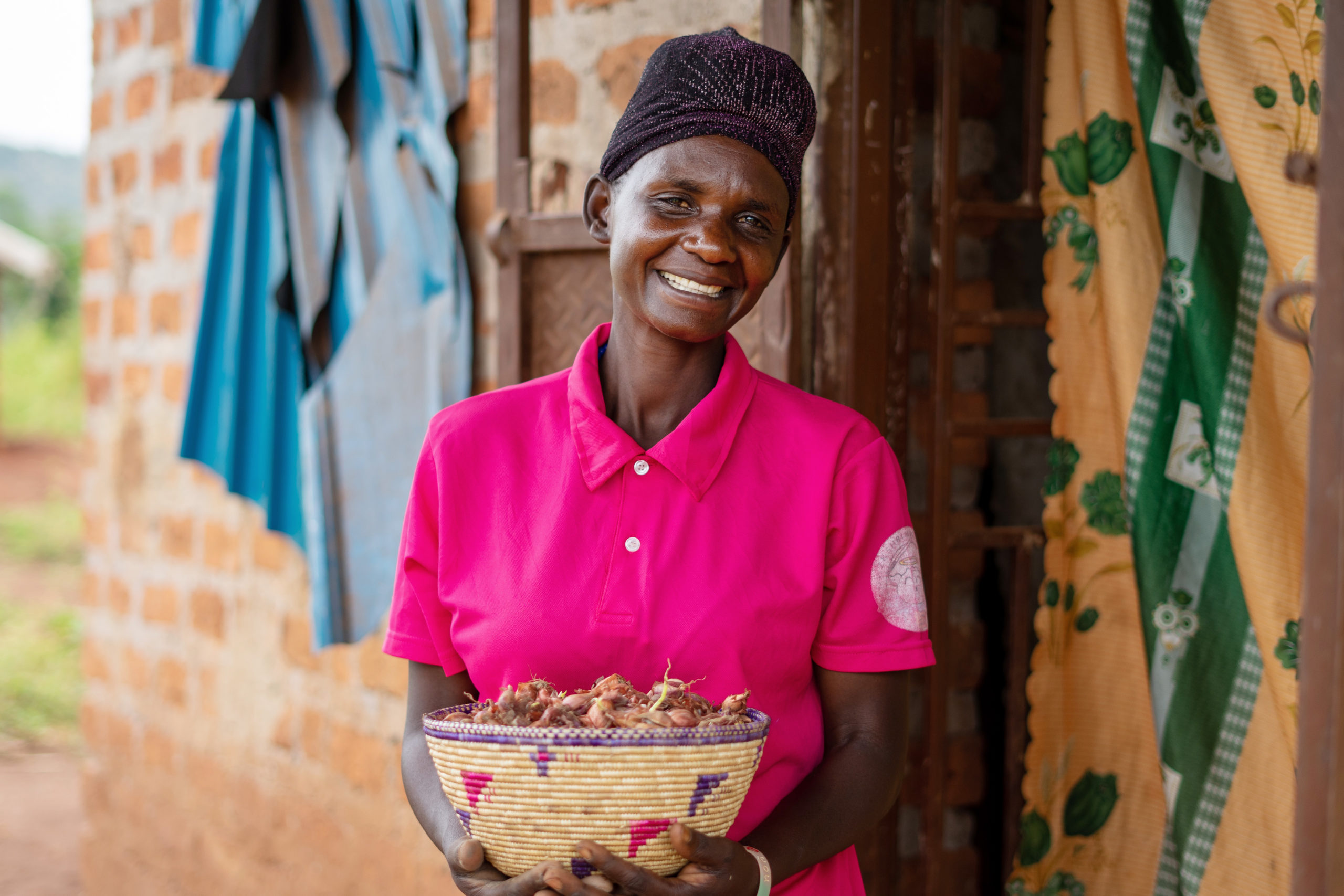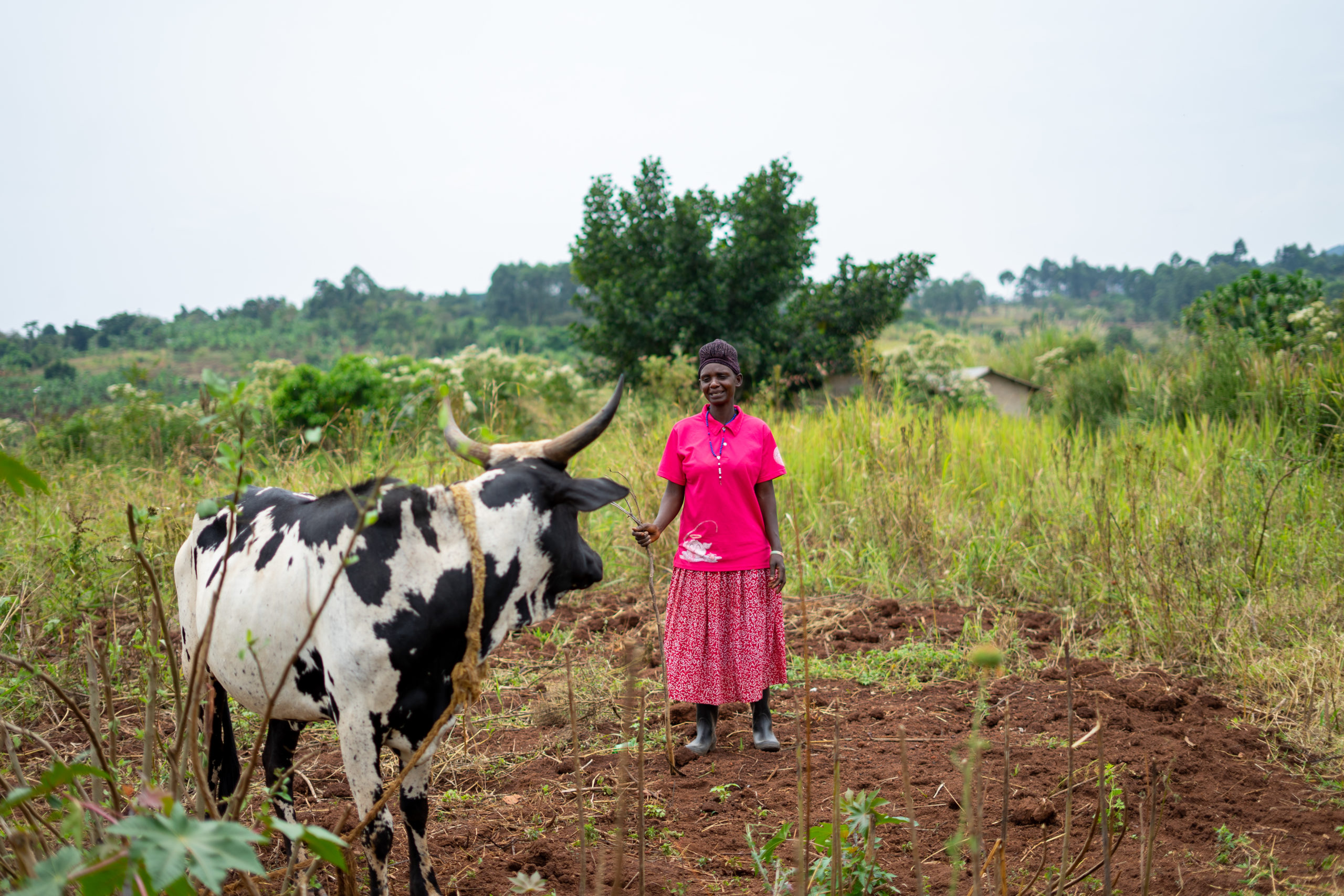From Subsistence Farming To Creating Wealth

Margaret, a 35-year-old mother of six children, has dedicated her life to community empowerment through farming in Bisa village, Kyenjojo District. Being elected as the chairperson of the Bisa women farmers’ group for the third time in a row is a testament to that.
“I have leadership skills, and this was my third time being selected as a leader. I believe that the women of Bisa village realized and saw my potential, and that’s how I became their leader again.” Margaret said.
Margaret started her journey toward becoming a community leader as a subsistence farmer struggling with low yields and high input costs. But Margret was not alone. Most small farmers in Sub-Saharan Africa suffer from similar issues. High input costs are a significant barrier to generating income from small farms, particularly fertilizer costs which have tripled across the region since 2020. However, this gradually changed for Margaret and other farmers in her village in 2022.
With support from the Government of Canada through Global Affairs Canada (GAC), Raising The Village rolled out the “From Last Mile Into Possibilities (FLIP)” in Bisa. This project prioritized women and youth-headed households to ensure communities can access water, health, and food security. Additionally, participants received training and support on diverse income-generating activities and financial inclusion initiatives introduced as part of the program. Margaret and her fellow farmers participated in training sessions on Good Agronomic Practices (GAP), learned about preparing organic compost manure, received better quality seeds that improve yields and got first-hand knowledge of various modern farming techniques.

Over time, with the application of her learnings, Margaret’s farm yield and income improved while input costs were reduced. As a result of her increased income, she was able to invest in livestock as productive assets and so far has acquired two cows, three goats, two pigs, and five chickens.
“Our biggest challenge was buying artificial fertilizers from the shops, which are very expensive.” Margaret said, “So when Raising the Village came and started teaching us about compost pits, making our own compost manure, we were able to save money.”
Bisa village women farmers group has been able to pool savings through their Village Savings and Loan Association (VSLA) which now provides affordable credit to its members for their farming inputs, small businesses and other necessities.
Margaret plans to start a small business, buy more livestock, and earn more money to care for her family. With her leadership and determination, she hopes to continue leading her community toward sustainable farming practices and a better future.
Be part of our journey. Support last-mile communities by supporting Raising The Village.
Let’s Stay Connected

